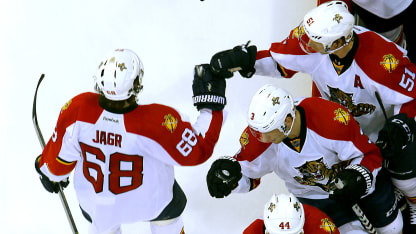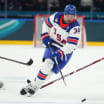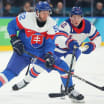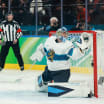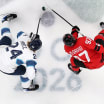Surprisingly, NHL scoring levels were about the same throughout Howe's career as they have been in Jagr's, fluctuating between 4.8 to 6.0 goals per game. That means we can crudely estimate each player's career scoring totals in modern-day terms by dividing each player's season-by-season scoring by the average scoring level of the day, and multiplying by a common, modern-day standard of 5.0 goals per game. In this regard, Jagr has outscored Howe, with 1,829 era-adjusted points to 1,665.
Jagr spent three NHL seasons in the Kontinental Hockey League, scoring 146 points in 155 games for Omsk Avangard from 2008-09 to 2010-11. His career also spanned three NHL lockouts, during which he had 39 points in 32 games for Omsk in 2004-05, and 107 points in 62 games for Kladno in the Czech Extraliga. Using modern metrics to translate those points to what he would have achieved in the NHL, that's another 224 possible points.
Similarly, Howe took off two seasons, then played six seasons in the WHA, where he scored 508 points in 419 games. That translates to 373 possible points in the NHL, giving him a total of 2,038 adjusted points to Jagr's 2,053.
In absolute, NHL terms, Messier is the next player for Jagr to catch. Messier scored 1,887 points. Can Jagr catch Messier? Statistically, it's impossible to say, because there's only one historical precedent among forwards who continued to play beyond age 44, and that's Howe. But with 37 more points, Jagr could finish his career No. 2 on the all-time scoring list, behind Wayne Gretzky and his unreachable total of 2,857 points.
